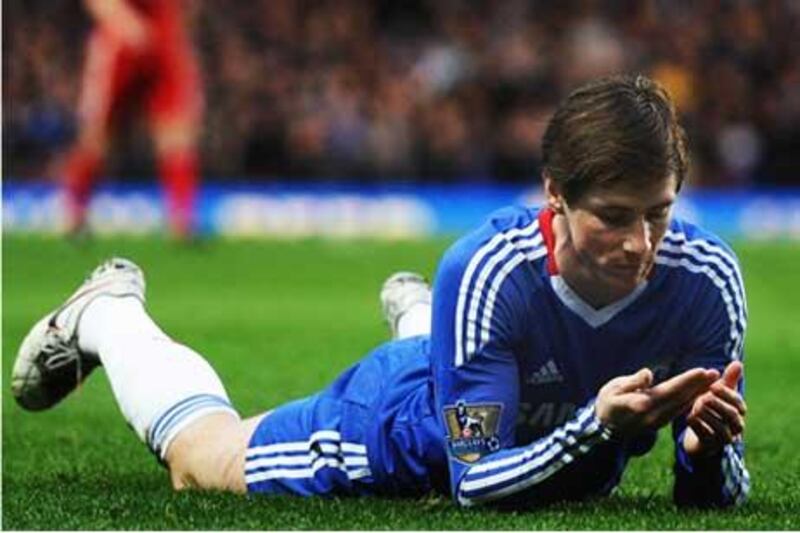Chelsea and Liverpool can appear trapped in a time warp together. With vitriol directed from the terraces, with a closely-contested, low-scoring game, it was as though Jose Mourinho and Rafa Benitez were embarking upon another Champions League semi-final.
Tactical chess was a constant in their encounters, a theme revived by Carlo Ancelotti and Kenny Dalglish. In a week where huge expenditure has overshadowed switches of systems, both were road-testing newish formations. Dalglish, as much as Raul Meireles, got the winner.
A return to Stamford Bridge suggested his private time machine would be rewound a quarter of a century, to the May afternoon in 1986 when Dalglish volleyed Liverpool to the title in his debut season as their player-manager. Yet nostalgia has bred renewal.
When Dalglish returned, the concern was that he was an anachronism, a 20th-century icon in a 21st-century game. Instead, yesterday's man plucked a tactic from the past and reaped the rewards. The man who appeared a comfort blanket for a troubled club set about smothering Chelsea.
The three-man backline is a rarity these days but Dalglish revived a discredited approach. The inclusion of an extra centre-back gave Liverpool safety in numbers, the return of Jamie Carragher an indefatigable fighter who derives particular pleasure from thwarting Chelsea.
As Fernando Torres discovered, familiarity bred containment; one colossal block from the vice-captain summed up his side's spirit.
With Ancelotti deploying Nicolas Anelka at the tip of an ersatz midfield diamond, Dalglish enforced a policy of overcrowding in the centre of the pitch. A revelation against Sunderland, Anelka only endured frustration yesterday.
His deployment was an indication that Chelsea have too many striking options. Liverpool, right now, may have too few, but they turned that into a virtue.
Ancelotti has an enviable attacking armoury, but their supply line was subject to constant harrying. Dalglish's 3-5-1-1 formation, given a dummy run against Stoke City, afforded Chelsea space only on the flanks and they were ill-equipped to take advantage of that.
Florent Malouda, the champions' premier winger, was positioned near the touchline but, for 72 minutes, on the wrong side of it.
While he languished among the replacements, Dalglish entrusted an entire flank apiece to Glen Johnson and Martin Kelly. The latter won his personal duel with Ashley Cole, forcing the England left-back on to the back foot.
The 20-year-old is an ever-present in Dalglish's brief reign and a beneficiary of a regime change. With Johnson exiled to the left to accommodate Kelly, an oft-heard criticism of Liverpool - that too few local players graduate to the first team - is being rendered outdated.
His promotion is a sign that Dalglish's Liverpool is taking shape. So, too, is the form of his scorer. Dalglish has liberated Meireles from the straitjacket Roy Hodgson fitted; a fourth goal in five games is the consequence of a catalytic intervention.
And so a match that was billed as the clash of the multimillion pound signings became something else altogether: a triumph of teamwork, organisation and discipline. Almost unnoticed, Luis Suarez went unused. Liverpool's purchases with the proceeds of the sale of Torres were not required.
Chelsea were disjointed and disappointing. Rather than lasting forever, their diamond was abandoned after 65 minutes; after 90, their title challenge all but ended.
In contrast, Liverpool have recorded four successive wins with a quartet of clean sheets. They are in sixth, their highest position of the season, and Dalglish's case for permanent employment is bordering on the indisputable.
Because while these two clubs spent £108 million (Dh637m) on strikers on Monday, the most influential individual was one who cost £440,000 in 1977: Dalglish.






